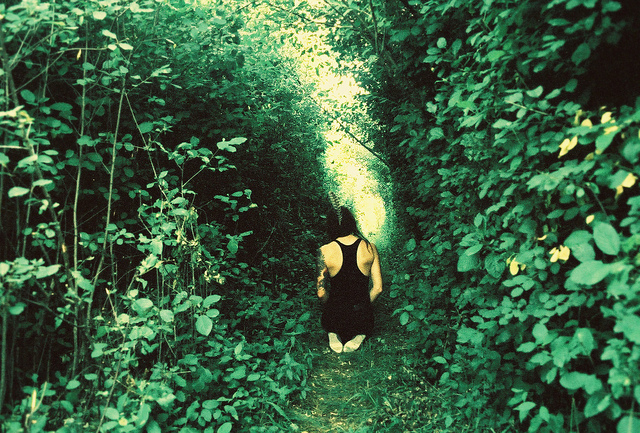Can I make a confession?
Up until recently I pressured myself to put on a happy face whenever I talked about myself or my business. If people asked how I or my business was doing, I’d tell them we were both fine.
Most of the time I wasn’t doing fine and the business wasn’t doing so great.
In the U.S. culture, being vulnerable and open about what you’re feeling is frowned upon. People don’t want to hear that you’re feeling sad, anxious or depressed—at least that’s what we tell ourselves. So we put on a happy face and pretend everything is okay, and not just to the people around us.
No—we put the happy face on toward ourselves and as a result we’re out of touch with our own feelings.
The problem with putting on a happy face is that eventually we forget what actual happiness feels like. We get used to putting on a mask, but no amount of faking it can turn that mask into a reality. If we don’t learn how to be present with all our emotions, eventually we aren’t present with any of them.
I learned to stop letting the cultural baggage of happiness bully me, when I learned how to still myself using Dzogchen meditation. In getting still, what I really discovered was an invitation to get to know myself on an intimate, emotional level that I’d previously been ignoring or trying to repress. Initially it was overwhelming, but when I allowed myself to work with what I felt, it came into balance.
If you want to try the meditation out yourself, here’s what you do.
Sit down somewhere and get comfortable. Find an object to look at in front of you and focus your awareness on that object and yourself. The trick here is that you aren’t thinking about the object. You are just being aware of the object. If you find yourself thinking about the color of the object or how it’s shaped, acknowledge the thought and then return to just being aware of the object.
You may find that thoughts and emotions come up. In the case of the thoughts, just be aware of them and then let them go. In the case of the emotions, open yourself to being aware of and allowing yourself to feel them. For example, if you feel sadness then let that sadness wash over you. You don’t want to think about the sadness, because if you think about it you are actually distancing yourself from feeling it. You want to feel it, intimately, throughout your being. Simply feel it and let it be part of who you are.
When we allow our awareness to feel the emotion, we are giving ourselves permission to really discover it. And what that feeling reveals to us may surprise us because it helps us uncover what’s underneath the emotion. What’s underneath the emotions are the experiences we haven’t fully acknowledged or allowed in. In feeling the emotion, we allow those experiences in and we begin to move toward a healthier relationship with them, which in turn leads to a healthier relationship with ourselves and the world around us.
When I started doing the Dzogchen practice and stilled myself, I discovered my emotions and what I was really feeling. It took a little while to get used to it, especially the blend of emotions I felt. I wasn’t just feeling anxious or sad. Sometimes I was feeling happiness and anxiety at the same time. Yet when I allowed myself to settle into what I was feeling, instead of endlessly analyzing it, what I discovered is that I could let go of my attachments to those feelings and just let myself be.
And doing that allowed me to step into my true self and my inner authority.
We can feel a blend of emotions and if we learn to be present with that blend, it helps us put down the mask and show our true faces to the world. When we do that we step into the authority of being our true selves and that is what makes us truly shine.
Author: Taylor Ellwood
Editor: Catherine Monkman
Image: danielle tineke/Flickr












Read 0 comments and reply